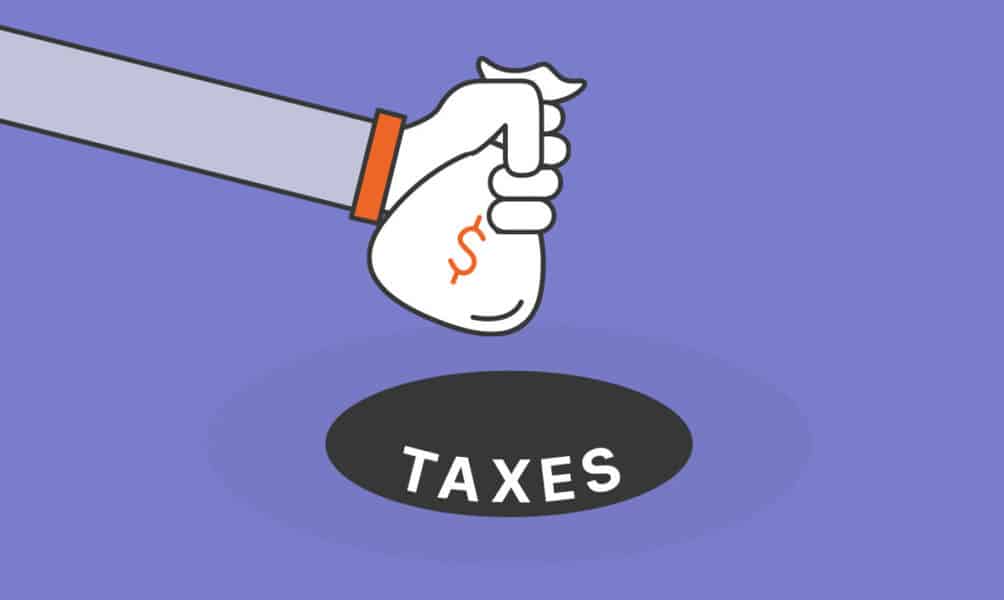If you’re starting an LLC, the business entity formation process is one of the first and most important hurdles. This step can be terribly complex ...
LLC Pass-Through Taxation: How Does it Work?
Written by: Carolyn Young
Carolyn Young is a business writer who focuses on entrepreneurial concepts and the business formation. She has over 25 years of experience in business roles, and has authored several entrepreneurship textbooks.
Edited by: David Lepeska
David has been writing and learning about business, finance and globalization for a quarter-century, starting with a small New York consulting firm in the 1990s.
Published on December 30, 2021

Forming a limited liability company (LLC) has many benefits, including personal liability protection, but also tax flexibility. LLCs, by default, are pass-through entities for tax purposes.
This guide provides all the information you need to understand pass-through taxation and how it impacts your LLC.
What Is “Pass Through” Taxation?
By default, profits and losses pass through the LLC to the owners, also known as members, who report them on their individual tax returns. The LLC itself is not taxed, which simplifies the process.
The losses and operating costs of the business are instead deducted from the members’ personal taxes, with taxes paid at each member’s personal tax rate.
If an LLC has only one member, it will, by default, be taxed as a sole proprietorship. If an LLC has more than one member, it will, by default, be taxed as a general partnership. In both cases, profits and losses again pass through to the member or members.
Benefits of Pass-Through Taxation
Pass-through taxation has several benefits.
Avoid Double Taxation
Again, pass-through taxation means that the LLC itself is not taxed. In contrast, a corporation is taxed at the corporate tax rate. Dividends paid to shareholders of the corporation are also taxed, which is known as double taxation. This is one of the main reasons many new business owners choose to form an LLC rather than a corporation.
Flexibility
One of the unique features of an LLC is the choice of taxation. If your business grows to a certain point, it may be financially beneficial to elect to have the LLC taxed as an S-Corporation or a C-Corporation. The main reason to do so is to avoid self-employment taxes, which LLC members are responsible for when the LLC is a pass-through entity.
Combining personal and business income for tax purposes
In a pass-through entity, all of your personal and business income are combined, so you have one tax return and one tax bill. This can simplify things for you at tax time and make handling your business and personal finances easier.
Do I Have to Choose Pass-Through Taxation?
Pass-through taxation is the default status for LLCs, but again, you can choose to have your LLC taxed as an S-Corporation or a C-Corporation.
With S-Corp status, the LLC itself is not taxed, but must file form 1120S, the U.S. Income Tax Return for an S-Corp. Revenues again pass through to the owners, who must receive a “reasonable salary“, as defined by the IRS, before taking any profit distributions from the LLC.
Members will be responsible for employment taxes on their salary but not for self-employment taxes on distributions taken above and beyond that salary. This, in fact, is the main reason business owners choose S-Corp status – to avoid self-employment taxes on distributions.
But keep in mind that S-Corp status comes with additional administrative requirements, which means added costs, such as payroll expenses.
C-Corp status means profits are taxed at the current rate for corporations (21% as of early 2023), which is often lower than the typical individual taxpayer rate. But C-Corp shareholders, including members, must also pay taxes on their distributions, though not self-employment taxes.
Thus, the C-Corp, like a corporation, is subject to what is referred to as double taxation. Determining if S-Corp or C-Corp status is the right move is tricky, so you may want to consult with a tax advisor.
FAQs
The main disadvantage of a pass-through entity is that owners are responsible for self-employment taxes, which have a combined rate of 15.3%.
The 20% pass-through deduction, which came from the Tax Cuts and Jobs Act of 2017, allows pass-through entity owners to deduct 20% of qualified business income if their taxable income is below $157,500 if single or $315,000 if they’re married. If your taxable income exceeds those amounts, you can still deduct part of your income, but it involves a complex calculation to determine the total.
You can reduce your taxes by deducting as many expenses as you can. You also may be able to reduce your tax bill by electing to be taxed as a corporation. Determining whether doing so will benefit you financially involves complex calculations that are best done by a tax advisor.
Yes, it often is. Pass-through taxation means the LLC is not taxed. In contrast, a corporation is taxed at the corporate tax rate. Dividends paid to shareholders of the corporation are also taxed, which is known as double taxation. This is one of the main reasons new business owners go with LLC.
Subscribe to Our Newsletter
and gain insider access to cutting-edge business insights and trends.
Featured Resources

10 Best LLC Formation Services
Published on August 22, 2022
Read Now

How to Pay Sales Tax for Small Business
Published on January 17, 2022
One of the best things about starting a new business is the taxes. Just kidding. But you will indeed have to deal with taxes, likely including sales ...
Read Now

How an LLC Protects You Personal Assets and When it Doesn’t
Published on January 6, 2022
A limited liability company (LLC) is one of the most popular business entity types for startup companies in part because of the liability protection ...
Read Now
Comments